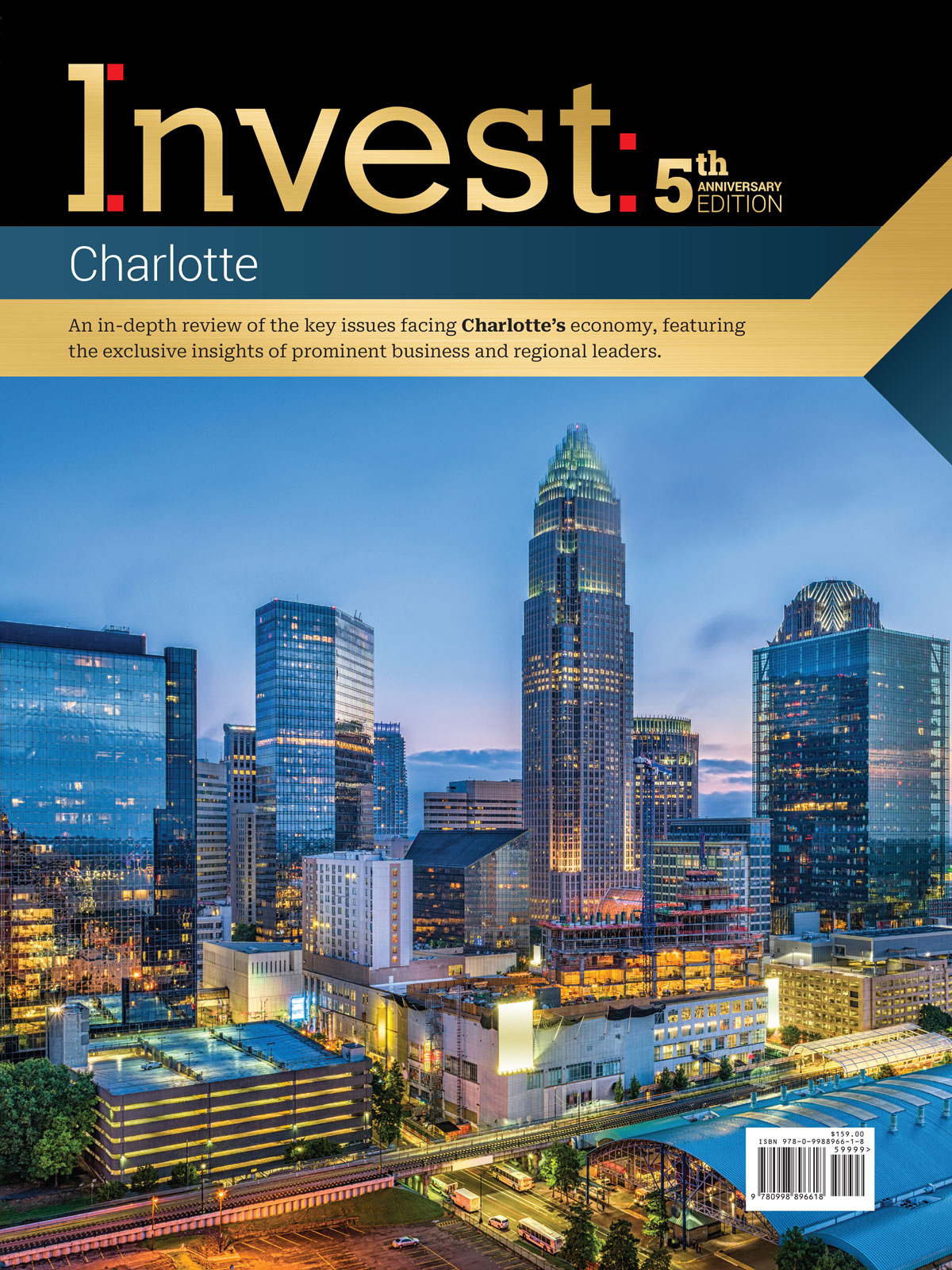Here’s what made banking and finance a focal point in 2023
Writer: Esteban Pages
 November 2023 — The finance industry has been a focal point in 2023 as banks have navigated higher interest rates, fluctuating inflation and bank collapses leading to more than $500 billion in combined losses earlier in the year.
November 2023 — The finance industry has been a focal point in 2023 as banks have navigated higher interest rates, fluctuating inflation and bank collapses leading to more than $500 billion in combined losses earlier in the year.
And while Goldman Sachs predicts inflation to shore up and interest rates to remain steady, they are not expected to reverse course in 2024 back to near zero.
While Silicon Valley Bank (SVB), Signature Bank, and First Republic Bank all collapsed earlier this year, leading to $548.5 billion in combined losses in terms of assets, the stock value of Greater Philadelphia banks has slowly recovered. West Reading’s Customers Bancorp, which took a 38% plunge in the aftermath, returned to $44.63 as of Nov. 14. This showed a 147% increase compared to its stock price of $18 in mid-March.
Overall business outlook has also remained relatively positive. According to Capital Analytics’ Business Sentiment Survey (CABSS) for 3Q23, 61% of the surveyed business leaders in northern markets expressed the economy was in a better position compared to six months ago; a 4% increase against 2Q23.
Invest: recently caught up with banking leaders in Greater Philadelphia such as Brad Fouss, SVP – market president Greater Philadelphia at OceanFirst Bank; Vincent Market, EVP & CFO of TruMark Financial Credit Union and Mark Biedermann, SVP & division head, PA, at Valley National Bank, to get their pulse of the region’s banking landscape, a lookback at the bank failures that sent ripple effects throughout the industry and more.
What is the current state of the banking sector in the greater Philadelphia area?
Mark Biedermann: The opportunities that exist are across the board with commercial and industrial companies and with commercial real estate developers; Valley has not substantially tightened its lending structures. We continue to actively pursue broad-based opportunities and it really speaks to our relationship approach to all types of lending, whether it be commercial and industrial or commercial real estate. We want to work with companies that offer full-fledged relationships in terms of loans and deposits. I expect that other organizations, particularly given the market challenges, may tighten up to some degree but that has not impacted Valley due to our diversified balance sheet and strong market position.
 Brad Fouss: We had three major bank failures earlier this year: Silicon Valley, Signature and First Republic. These failures have caused more attention to loan-to-deposit ratios and liquidity rather than to loan growth. At OceanFirst, we are being selective with new lending relationships, but we are continuing to support the existing customer base. The other major trend is interest rates rising above what most borrowers have become used to. From what we see, customers and businesses are doing well, but the current interest rates have increased the cost of credit for borrowers. The banks that had trouble did not have the profile that is common to other regional banks such as OceanFirst Bank. They grew quickly with a lot of deposits, and they put those deposits in long-term securities, which is different from OceanFirst Bank. In order to build trust we continue what has always been our priority — talking with our clients. Specifically we have focused on educating our clients about the health of OceanFirst Bank. This strategy has worked well, we have not seen any material declines in our deposits.
Brad Fouss: We had three major bank failures earlier this year: Silicon Valley, Signature and First Republic. These failures have caused more attention to loan-to-deposit ratios and liquidity rather than to loan growth. At OceanFirst, we are being selective with new lending relationships, but we are continuing to support the existing customer base. The other major trend is interest rates rising above what most borrowers have become used to. From what we see, customers and businesses are doing well, but the current interest rates have increased the cost of credit for borrowers. The banks that had trouble did not have the profile that is common to other regional banks such as OceanFirst Bank. They grew quickly with a lot of deposits, and they put those deposits in long-term securities, which is different from OceanFirst Bank. In order to build trust we continue what has always been our priority — talking with our clients. Specifically we have focused on educating our clients about the health of OceanFirst Bank. This strategy has worked well, we have not seen any material declines in our deposits.
 Vincent Market: The banking environment in Philadelphia is highly competitive. It is dominated by several large financial institutions but there are also many regional and small institutions competing for a tight segment of that marketplace. A banking crisis consumed Silicon Valley Bank and Signature Bank, but those were unique situations. The issues impacting those financial institutions were not impactful issues for us as a credit union. That has made our members feel safe about us as a credit union and about financial institutions in the Philadelphia marketplace in general. We have always been a fiscally conservative organization. We take our fiduciary responsibility of safeguarding our members’ deposits very seriously. Additionally, from a regulatory standpoint, credit unions are required to maintain higher levels of capital compared to other types of financial institutions, so we are well-capitalized. TruMark Financial represents the financial needs of over 130,000 members, which has a major impact on the local community. We treasure the confidence and loyalty of our members by running a sound financial organization. We are not a risky type of organization and we keep a conservative posture regarding our financials.
Vincent Market: The banking environment in Philadelphia is highly competitive. It is dominated by several large financial institutions but there are also many regional and small institutions competing for a tight segment of that marketplace. A banking crisis consumed Silicon Valley Bank and Signature Bank, but those were unique situations. The issues impacting those financial institutions were not impactful issues for us as a credit union. That has made our members feel safe about us as a credit union and about financial institutions in the Philadelphia marketplace in general. We have always been a fiscally conservative organization. We take our fiduciary responsibility of safeguarding our members’ deposits very seriously. Additionally, from a regulatory standpoint, credit unions are required to maintain higher levels of capital compared to other types of financial institutions, so we are well-capitalized. TruMark Financial represents the financial needs of over 130,000 members, which has a major impact on the local community. We treasure the confidence and loyalty of our members by running a sound financial organization. We are not a risky type of organization and we keep a conservative posture regarding our financials.
What is your outlook for the banking sector in general for the next few years?
Biedermann: There will be certain organizations that will struggle through this cycle both on a credit quality standpoint and funding basis. The recent gyrations that we had were actually based more on funding and liquidity than on credit quality, so going forward the issues for the industry may lie with the confluence of these two events: funding and credit quality. To compare Valley to that potential confluence, we have a very broad-based deposit generation machine that spans from Florida to New York vis-a-vis our retail network and our client base without any real concentrations based on our diversified client base. We have never chased a rate, which means being disciplined in getting the spread on your loans where you can actually make a real profit. You have to watch both your deposit and loan exposures, which we do daily here at Valley. That way we understand exactly where we are and where we need to be with the clients.
Fouss: Overall, the banking sector is solid. In 2023, we will likely continue to see slower growth and a continued focus on deposits while supporting our clients. We have seen a slow-down in bank M&A activity, but I do think that we will see an increase over the next few years. I believe that the outcome of the 2024 presidential election could have an impact on the banking sector over the next few years, so we will be watching that as well.
Market: The economic pendulum does not swing too widely in Philadelphia. We have a diverse economic base but pharmaceutical companies and educational institutions are what stand out in this region. In other words, “eds” and “meds” is what we are all about in Philadelphia. This is important because, while the national economy could be going into a recession, our members are still borrowing and buying things. Of course, we have seen a slowdown but nothing unusual for a credit union. I am comfortable about where we are economically. Even if we have a pronounced recession, I do not think we would take a hard hit and am not concerned about significant job losses. We have great infrastructure and a lot of things to offer as well as solid financial institutions that are ready to help stimulate growth.
For more information, visit:













